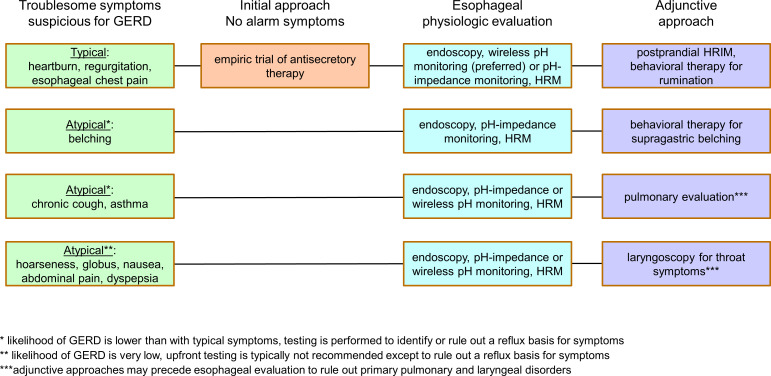Figure 1.
Troublesome typical and atypical symptoms suspicious for gastro-oesophageal reflux disease (GERD), and usual approach to evaluation of these symptoms. An empiric trial of antisecretory therapy is appropriate for typical symptoms in the absence of alarm symptoms. Prolonged wireless pH monitoring is most appropriate for quantification of reflux burden with typical symptoms, although pH-impedance or even pH only monitoring may be options depending on availability and expertise. Belching, cough and asthma may have a potential association with reflux episodes. Supragastric belching and rumination need to be identified, preferably using high-resolution impedance manometry (HRIM) and managed with behavioural therapy. Up-front testing is performed primarily to rule out a reflux basis for symptoms for all other atypical symptoms. Pulmonary evaluation and laryngoscopy serve to rule out primary non-GERD disorders, and may precede oesophageal physiological testing.

